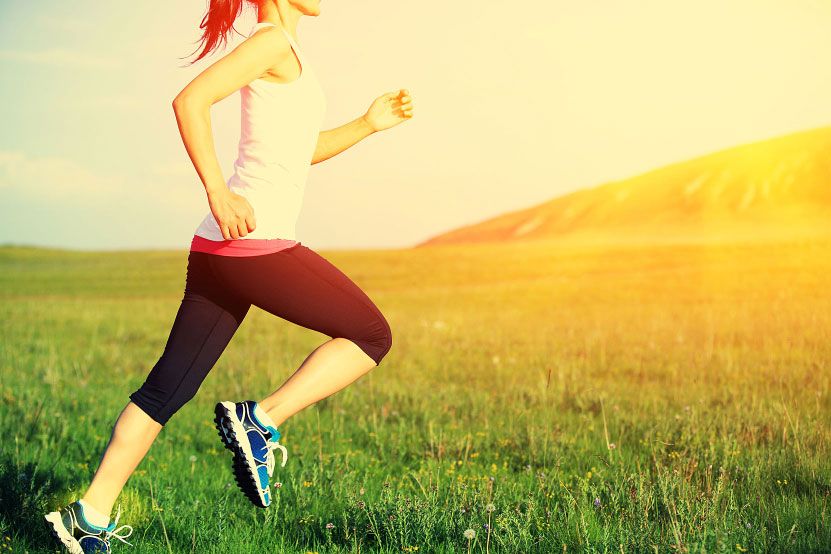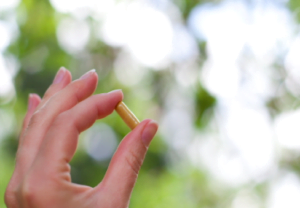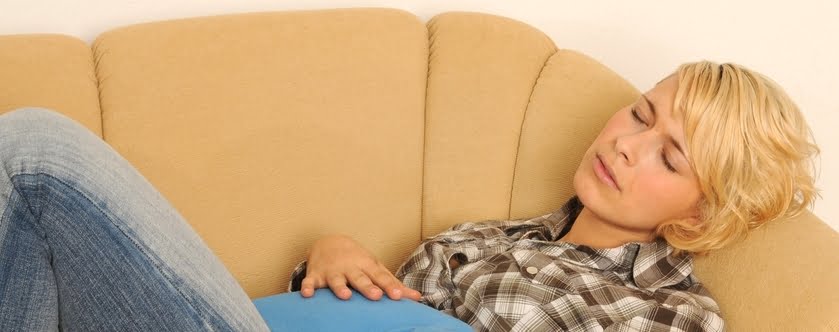
Chronic fatigue has a profound effects on the physical, emotional and mental health. It can have a phenomenal impact on a patient’s quality of life, interfering with daily activities and also may potentially have devastating social and economic consequences
The section below highlights other medical conditions which can cause chronic fatigue but these excluded, the precise aetiology is not fully understood but researchers have linked it to excess oxidative stress [Logan].
Management of Chronic Fatigue:
Medical treatments:
Associated aggravating medical conditions should be looked for and treated if possible. The most obvious include anaemia, electrolyte imbalance, liver and renal failure; drugs such as opiates, antihistamines, anti-sickness medication, steroid withdrawal or adrenal insufficiency and sedatives [Thomas]. Some symptoms can cause fatigue by disturbing sleep pattern, such as anxiety, depression, nocturia, pain, restless legs, night sweats and pruritus [Thomas].
Once this conditions have been excluded or treated medical treatment have been tried with limited success. Psycho-stimulants such as the amphetamine salts such as dextroamphetamine and levoamphetamine (Adderall) or methylphenidate (Ritalin) licensed for deficit hyperactivity disorder and narcolepsy, have been shown to improve fatigue and concentration in the short term and hence its popularity amoung students but can induce insomnia and agitation with long term use aggravating chronic fatigue syndromes [Yancey]. Caffeine is the most commonly used self administered drug but this only offers a short term fix, does not help chronic fatigue and in fact may make if worse by impairing sleep [Greenlee].
Integrative strategies (non-nutritional):
Techniques aimed at reducing stress include relaxation classes, yoga and massage have some evidence for fatigue improvement by improving sleep patterns along side other sleep hygiene strategies [Bower, Garssen]. Caffeine in tea and coffee can help in the morning but can lead to dependency and can impairing sleep in sensitive individuals [Greenlee]. Regular Qigong, a Chinese system of breathing techniques, posture and stretching has been shown to help in management of fatigue [Chen, Deng] as well as therapist delivered acupuncture and Cognitive Behavior Therapy [molassiotis, Price].
Exercise:

In terms of timing, exercise interventions do not have to wait until initial treatments have finished. The PACES RCT reported significant reductions in fatigue is women started a supervised moderately intense exercise programme starting during chemotherapy [Van Waart].
Nutritional strategies:
Identifying and corrected food intolerances such as lactose and gluten can improved fatigue as well as gut and associated systemic symptoms [Werbach, Manuel]. Correcting essential vitamin, mineral, fatty acids and amino acid deficiencies or excesses can been shown to help [Werbach, Manuel. Shunning high glycaemic rich foods such as sugar and refined carbohydrates, especially on an empty stomach, can help fatigue by avoiding cause sudden rises in blood sugar prompting inappropriate insulin release and subsequent hypoglacemia [Werbach]. It is often difficult for people to identify added sugar in foods and juices but numerous online recipes are now available which can guide a switch to slow release carbohydrates via whole fruits, green vegetables, vegetable oils and nut.
Ginseng (Panax quinquefolius) has long been used in traditional Chinese medicine as a natural energy enhancer. These foods can be added to meals or drank in teas but, in terms of scientific investigation, most of the data stems from laboratory or clinical trials which have concentrated it into nutritional supplements: Ginseng’s active ingredients, called ginsenosides, have been shown in animal studies to reduce cytokines related to inflammation and to help regulate cortisol levels, two factors with contribute to the aetiology of fatigue [Greenlee]. Its potential benefits for cancer related fatigue in humans was investigated in a double-blind randomized trial which recruited 364 patients from 40 USA community Hospitals. Participants took either a capsule containing 2000mg of ginseng (standardised to 3% ginsenosides) or a placebo. By 8 weeks, a statistically significant difference change in fatigue was seen as measured by the Multidimensional Fatigue Symptom Inventory (20 v 10.3, P =0.003). Greater benefit was reported in patients receiving active cancer treatment [Barton D]. It must be noted that this study used a whole root product not ginseng methanolic extract commonly used in other over the counter supplements which has demonstrated estrogenic effects in breast cancer cell lines [king].

Guarana (Paullinia cupana), is a plant in the maple family that grows along the Amazon and is common in Brazil. Guarana is commonly used as a stimulant and contains about twice the caffeine of the coffee bean. It also contains theobromine and theophylline, other stimulants that affect the central nervous system. Well conducted RCT have not been published evaluating Guarana. [da Greenlee, Costa Miranda, de Oliveira Campos].
Other nutritional factors
Various vitamins and minerals are likely only to help if correcting a known deficiency [Greenlee] but it is difficult to know if you have an excess or deficiency in micronutrients unless they are measured (read more about nutritional testing) . Acetyl-l- carnitine has been investigated in small studies the evidence of a benefit is not robust [Hershaman]. Melatonin (0.5 to 3 mg, 5 to 8 hours before bedtime) has been shown to improve fatigue symptoms among people with Chronic Fatigue Syndrome with poor sleep patterns [van Heukelom] but has not ben investigated post cancer [Greenlee]. A small study of polyphenol rich, sugar free cocoa did demonstrate an improvement in the functional disability caused by fatigue but further confirmatory trials are required [Sathyapalan].
References
- Sisto SA, LaManca J, Cordero DL et al Metabolic and cardiovascular effects of a progressive exercise test in patients with chronic fatigue syndrome. Am J Med. 1996;100(6):634-40.
- Van Waart H, Stuiver MM, Van Harten WH et al Effect of Low-Intensity Physical Activity and Moderate- to High-Intensity Physical Exercise During Adjuvant Chemotherapy on Physical Fitness, Fatigue, and Chemotherapy Completion Rates: Results of the PACES Randomized Clinical Trial. 2015 JCO 2015, 33 (33); doi. 10.1200/JCO.2014.59.108
- Manuel Y, Moorkens G, vertommen J et al Magnesium statsus and parameters of the oxidant-antioxidant balance in patients with chronic fatigue: effects of supplementation with magnesium. J Am Coll Nutr. 2000; 19(3): 374-382.
- Wilmore JH and Costill DL. (2005) Physiology of Sport and Exercise: 3rd Edition. Champaign, IL: Human Kinetics
- Werbach MR. Nutritional strategies for treating chronic fatigue. Altern Med Rev 2000; 5(2):93-108.
- Logan AC, Wong C. Chronic fatigue syndrome: oxidative stress and dietary modifications Altern Med Rev. 2001 6(5): 450-9.
- Sathyapalan T, Beckett S, Rigby A et al. High cocoa polyphenol rich chocolate may reduce the burden of the symptoms in Chronic fatigue syndrome. Nutrition Journal 2010, 9;55, pp2-8.
- Sullivan A, Nord C, Nord C et Nutrition Journal 2009, 8:4. Effect of supplement with lactic-acid producing bacteria on fatigue and physical activity in patients with chronic fatigue syndrome
- Rao AV, Bested AC, Beaulne TM et al A randomized, double-blind, placebo-controlled pilot study of a probiotic in emotional symptoms of chronic fatigue syndrome Gut Pathog. 2009; 1: 6.
- Price JR, Mitchell E, Tidy E, Hunot V. Cognitive behaviour therapy for chronic fatigue syndrome in adults. Cochrane Database Syst Rev. 2008(3):CD001027.
- Thomas R, A. Makris, D. Bloomfield, M. Williams. Giving patients a choice improves quality of life: A multi-centre, investigator-blind, randomised, crossover study comparing letrozole with anastrozole. Clinical Oncology (2004) 16: 485-91.
- Thomas R Anaemia fatigue and Epoeitin in Oncology. British Journal of Cancer Management. Vol.2 April No. 4, 2005.
- Bower JE, Garet D, Sternlieb B, et al. Yoga for persistent fatigue in breast can- cer survivors: a randomized controlled trial. Cancer. 2012;118(15):3766–3775.
- Yancey J, Thomas S. Chronic Fatigue Syndrome: Diagnosis and Treatment. American Family Physician. 2012;86(8)741-6.
- van Heukelom RO, Prins JB, Smits MG, Bleijenberg G. Influence of melatonin on fatigue severity in patients with chronic fatigue syndrome and late melatonin secretion. Eur J Neurol. 2006;13:55-60.
- Hobday RA, Thomas S, O’Donovan A, Murphy M, Pinching AJ. Dietary intervention in chronic fatigue syndrome. J Hum Nutr Diet. 2008;21(2):141-9.
- Molassiotis A, Bardy J, Finnegan-John J, et al. A randomized, con- trolled trial of acupuncture self-needling as maintenance therapy for cancer-related fatigue after therapist-delivered acupuncture. Ann Oncol. 2013;24(6):1645–1652.
- da Costa Miranda V, Trufelli DC, Santos J, et al. Effectiveness of guaran (Paullinia cupana) for postradiation fatigue and depression: results of a pilot double-blind randomized study. J Altern Complement Med. 2009;15(4):431–433.
- de Oliveira Campos MP, Riechelmann , Casa FB, Del Giglio A. Guarana (Paullinia cupana) improves fatigue in breast cancer patients undergoing systemic chemotherapy. J Altern Complement Med. 2011;17(6):505–512.
- Greenlee H, Balneaves L, Carlson L et al. Clinical Practice Guidelines on the Use of Integrative Therapies as Supportive Care in Patients Treated for Breast Cancer. Journal of the National Cancer Institute Monographs, No. 50, 2014 346-351.
- Chen Z, Meng Z, Milbury K, et al. Qigong improves quality of life in women undergoing radiotherapy for breast cancer: results of a randomized controlled trial. Cancer. 2013;119(9):1690–1698.
- Deng G, Chan Y, Sjoberg D, et al. Acupuncture for the treatment of post- chemotherapy chronic fatigue: a randomized, blinded, sham-controlled trial. Support Care Cancer. 2013;21(6):1735–1741.
- Garssen B, Boomsma MF, Meezenbroek EJ, et al. Stress management training for breast cancer surgery patients. Psychooncology. 2013;22(3):572–580.
- Barton DL, Liu H, Dakhil SR, et al. Wisconsin Ginseng (Panax quinque- folius) to improve cancer-related fatigue: a randomized, double-blind trial, N07C2. J Natl Cancer Inst. 2013;105(16):1230–1238.
- King ML, Adler SR, Murphy LL. Extraction-dependent effects of American ginseng (Panax quinquefolium) on human breast cancer cell proliferation and estrogen receptor activation. Integr Cancer Ther. 2006;5(3):236–243.
- Groeger D, O’Mahony L, Murphy EF et al Bifidobacterium infantis 35624 modulates host inflammatory processes beyond the gut. Gut Microbes. 2013 Jul-Aug;4(4):325-39. doi: 10.4161/gmic.25487. Epub 2013 Jun 21.
- Velthuis MJ, et al. The effect of physical exercise on cancer-related fatigue during cancer treatment: a meta-analysis of Randomised Controlled Trials Clinical Oncology, 2010, 22(3):208-21. doi: 10.1016/j.clon.2009.12.005.
- Cramp F, Daniel J. Exercise for the management of cancer-related fatigue in adults. Cochrane. Database. Syst.Rev. 2008;CD006145
- Lucia A, Earnest C, Perez M. Cancer-related fatigue: can exercise physiology assist oncologists? Lancet Oncol. 2003;4:616-625.
- Wagner LI, Cella D. Fatigue and cancer: causes, prevalence and treatment approaches. Br.J.Cancer. 2004;91:822-828.
- McNeely ML, Campbell KL, Rowe BH, Klassen TP, Mackey JR,Courneya KS. Effects of exercise on breast cancer patients and survivors: a systematic review and meta analysis. CMAJ. 2006;175:34-41.

